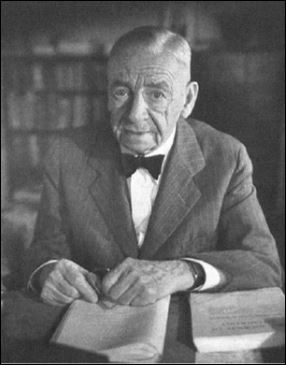Why was Otto Loewi Awarded the Nobel Prize for Physiology or Medicine in 1936?
Otto Loewi: Nobel Laureate for Pioneering Discoveries in Chemical Transmission of Nerve Signals (1936)
Otto Loewi, an Austrian-American pharmacologist and physiologist, made groundbreaking contributions to the field of neuroscience during the early 20th century. Renowned for his pioneering research on the chemical transmission of nerve signals, Loewi played a pivotal role in unraveling the mechanisms by which neurons communicate with each other. In recognition of his exceptional work, he was awarded the Nobel Prize for Physiology or Medicine in 1936. This article explores the reasons behind Loewi’s prestigious honor and highlights his remarkable scientific breakthroughs.

Demonstrating Chemical Transmission:
Otto Loewi’s Nobel Prize was primarily awarded for his investigations into the chemical transmission of nerve signals. Loewi conducted a series of ingenious experiments that revealed the existence of chemical substances, known as neurotransmitters, which mediate communication between nerve cells.
One of Loewi’s landmark experiments involved the isolation of two frog hearts connected through a fluid-filled chamber. He demonstrated that by stimulating one heart, the fluid from the chamber could induce a change in the second heart’s activity, even when the nerves were not directly connected. This experiment provided the first evidence of chemical transmission between neurons.
Identification of Acetylcholine:
One of Loewi’s significant contributions was the identification of acetylcholine as a neurotransmitter. Through his experiments, Loewi discovered that the substance responsible for mediating the transmission between the frog hearts was acetylcholine. He demonstrated that acetylcholine released by one nerve cell could interact with specific receptors on the target cell, initiating a response.
Loewi’s identification of acetylcholine as a neurotransmitter provided a major breakthrough in understanding the chemical basis of neuronal communication. It laid the foundation for subsequent research on neurotransmitters and their roles in various physiological processes.
Impact on Neuroscience and Pharmacology:
Otto Loewi’s discoveries had a profound impact on the fields of neuroscience and pharmacology. His research revolutionized our understanding of how nerve cells communicate and paved the way for advancements in the treatment of neurological and psychiatric disorders.
Loewi’s identification of acetylcholine and his demonstration of chemical transmission between neurons opened up new avenues for drug development. Medications that target acetylcholine receptors have since been developed to treat conditions such as Alzheimer’s disease, Parkinson’s disease, and myasthenia gravis.
Recognition and Legacy:
Otto Loewi’s Nobel Prize in 1936 celebrated his exceptional scientific achievements and the transformative impact of his research in the field of neurotransmission. His discoveries regarding the chemical transmission of nerve signals revolutionized our understanding of how neurons communicate and provided a basis for advancements in pharmacology and therapeutics.
Loewi’s contributions continue to shape the fields of neuroscience, pharmacology, and medicine. His work inspired further investigations into neurotransmitters, their receptors, and their roles in normal and pathological processes. His research has had a lasting impact on the development of drugs that target neurotransmitter systems, improving the treatment of numerous neurological and psychiatric conditions.
Otto Loewi’s Nobel Prize in 1936 honored his groundbreaking contributions to the field of neuroscience and his pivotal role in unraveling the mechanisms of chemical transmission of nerve signals. His experiments and discoveries regarding acetylcholine and the concept of chemical transmission transformed our understanding of how neurons communicate and laid the foundation for advancements in pharmacology and therapeutic interventions.
Loewi’s legacy continues to inspire advancements in neuroscience, pharmacology, and medicine. His work serves as a testament to the power of scientific inquiry and the pursuit of knowledge in improving human health and unraveling the complexities of the human nervous system.




